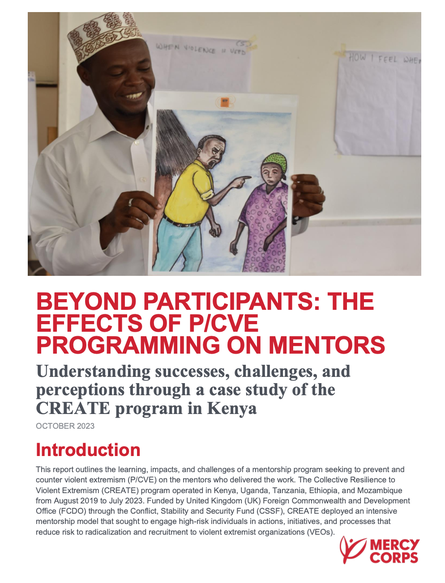Understanding successes, challenges, and perceptions through a case study of the CREATE program in Kenya

This report outlines the learning, impacts, and challenges of a mentorship program seeking to prevent and counter violent extremism (P/CVE) on the mentors who delivered the work. The Collective Resilience to Violent Extremism (CREATE) program operated in Kenya, Uganda, Tanzania, Ethiopia, and Mozambique from August 2019 to July 2023. Funded by United Kingdom (UK) Foreign Commonwealth and Development Office (FCDO) through the Conflict, Stability and Security Fund (CSSF), CREATE deployed an intensive mentorship model that sought to engage high-risk individuals in actions, initiatives, and processes that reduce risk to radicalization and recruitment to violent extremist organizations (VEOs).
The report captures the experiences of CREATE mentors in Kenya and shows that a mentorship-centered model can have positive and transformative effects on mentors, as well as the mentees they are working to support. Positive impacts enable mentors to be more effective and motivated in how they support at-risk participants, while also leading to significant impacts on mentors’ own lives. Negative effects experienced by mentors were largely able to be mitigated, including through applying lessons from skills training or the receipt of appropriate support from the CREATE implementing team.
These findings suggest how targeted interventions for at-risk individuals can both reduce their risk of radicalization and recruitment while also having longer term benefits on members of their wider support system—providing solid and actionable insights for investing in P/CVE mentorship-centered models.